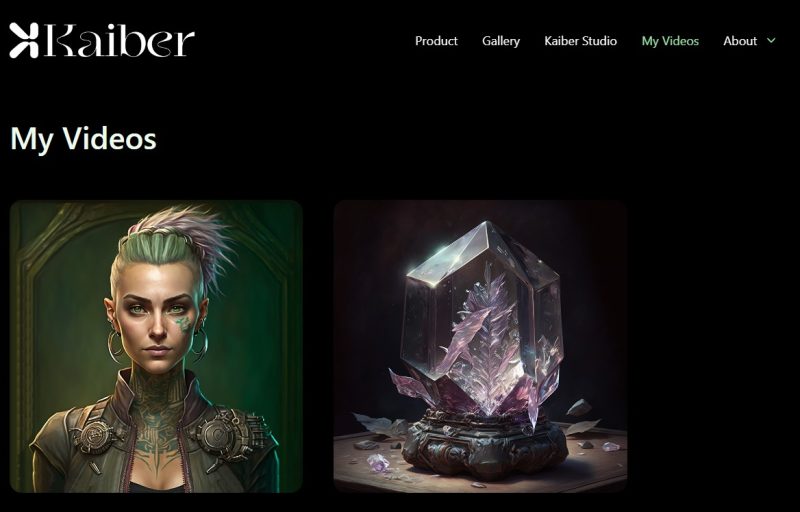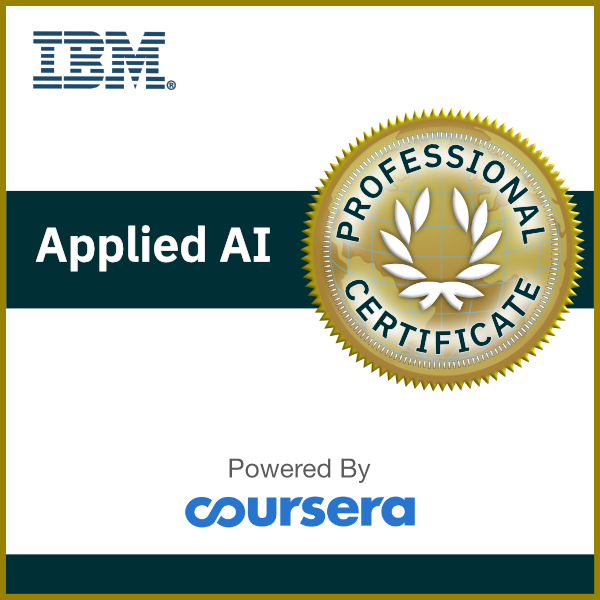A career in AI offers not only the prospect of attractive salaries but also the opportunity to help shape the modern world. Companies across industries are increasingly adopting AI-based solutions, creating a strong demand for specialists. This is a fast-growing field where there is something for everyone, from engineering to AI ethics. A career in AI is therefore not tied to one business sector: it opens doors to creative industries, finance, and IT. So how to choose the right career field in AI? Read our article and find out.
Career in AI – table of contents:
- A career in AI — what opportunities does it offer?
- In what sectors is there a demand for AI specialists?
- What skills are necessary to start a career as an AI engineer?
- Data Science — what competencies do you need?
- Career in applied AI
- AI ethics
- AI platforms for training –where to gain knowledge?
- What soft skills are valued in the AI industry?
- Summary
A career in AI – what opportunities does it offer?
Artificial intelligence is present in virtually every aspect of business today, from automating manufacturing processes to personalizing online store offerings to analyzing large amounts of data. Although the situation is very dynamic, there are several major career paths in AI:
- Engineering. AI and machine learning engineers have analytical minds and a passion for solving complex problems.
- Data. Data science, the analysis and interpretation of data, is the foundation of any AI project. Without systems to collect and process raw data, it would be impossible to use it effectively.
- Applied AI. According to McKinsey’s “Technology Trends Outlook 2023” report, applied AI is one of the fastest-growing technology sectors. It includes business implementations of machine learning (ML), image recognition (Computer Vision), and natural language processing (NLP). An important part of it is the application of AI to marketing and sales.
- AI ethics. A career in AI as an ethics officer is one of the emerging professions focusing on creating AI policies for organizations and ensuring compliance with the law.
In what sectors is there a demand for AI specialists?
According to the US Bureau of Labor Statistics, technological advancements are driving the demand for artificial intelligence experts, which is expected to increase by 23 percent from 2022 to 2032. That’s much faster than in other industries. Here are the key players:
- Finances — banks and investment firms use big data and predictive algorithms to maximize profits and improve fraud detection.
- Agriculture — intelligent systems make it possible to optimize crop management and improve yields – this is where agrotechnologists come in. Thanks to their work, it is possible to minimize the use of fertilizers and pesticides, use robots, and precisely target and destroy pests.
- Healthcare — AI is changing the face of medicine by improving diagnostics and supporting telemedicine – jobs like “health data analyst” are emerging. AI is also being used extensively in research to develop new drugs and treatments.

Source: DALL·E 3, prompt: Marta M. Kania
What skills are necessary to start a career as an AI engineer?
AI engineer jobs are for people who are fascinated by technology and have programming skills. For example, AI engineers who develop personalized recommendations for platforms like Netflix and Spotify are responsible for developing algorithms that match content to users’ preferences.
Data Science — what competencies do you need?
To be an effective data analyst, it is essential to have technical skills, such as knowledge of programming languages used in data analysis, for example, Python or R, and data visualization tools (such as Tableau or Power BI). It is also important to be able to work with large data sets, which requires knowledge of databases and SQL queries.
Apart from technical skills, statistical and mathematical skills are the foundation of data analysis. They allow for correct interpretation and conclusions. In addition, an analyst must have communication skills to effectively present analysis results and recommendations. Critical thinking and problem-solving skills are also useful in generating valuable business insights.
A career in applied AI
AI-powered marketing is no longer the future but an everyday reality. Using customer data, companies can tailor communications and products to individual users’ needs.Specialists will need to be able to configure sales chatbots or recommendation systems to help personalize online store offers. It will also be important to be able to use generative artificial intelligence, that is to say:
- chatbots like ChatGPT or Bard that can help with marketing strategies and content,
- Midjourney or DALL·E 3 for creating images, and
- Runway or Kaiber for video content.

Source: Kaiber (https://kaiber.ai/dashboard)
AI ethics
Ethics specialists deal with an important aspect of technology: challenges to privacy and the impartiality of algorithms. Their job is to ensure that systems based on artificial intelligence are used responsibly and according to the company’s values and the law.
AI platforms for training –where to gain knowledge?
The plethora of online learning platforms allows for flexible training in artificial intelligence and self-preparation for a career in AI. Here are a few recommended options:
- IBM AI Engineering Professional Certificate (https://www.coursera.org/professional-certificates/applied-artifical-intelligence-ibm-watson-ai) – a 9-month program covering machine learning, neural networks, image processing, and computer vision,
- Deeplearning.ai (https://www.deeplearning.ai/) – a 3-month program from one of the leading experts in AI, Andrej Karparthy,
- Coursera (https://coursera.org/)– a wide range of courses, specializations, and professional certifications in AI, machine learning, data science, and related fields. Programs created in cooperation with Stanford University and IBM are available,
- Introduction to generative AI from Google (https://www.cloudskillsboost.google/paths/118 ) – a set of introductory courses on generative AI, Large Language Models (LLMs), and their applications.
Regardless of the chosen platform, the key is to combine learning theory with practice in the form of sample projects and solve real business and social problems using AI and data science.

Source: Coursera (https://www.coursera.org/professional-certificates/applied-artifical-intelligence-ibm-watson-ai)
What soft skills are valued in the AI industry?
Despite the rapid evolution of technology, certain qualities will remain the same. To develop a career in AI, creativity or problem-solving skills will come in handy. The ability to work in a team is also considered an important asset when working on AI projects.
Summary
Going through the maze of career opportunities in the field of artificial intelligence requires a thorough understanding of both the needs of the job market and your own aptitudes. Understanding the specifics of different roles and their requirements will allow you to accurately choose a career in AI, chart an educational path, and focus on developing the most valuable soft skills. Artificial intelligence is evolving at an unprecedented rate. Adapting your career path to it will require flexibility, courage, and out-of-the-box thinking. But it may prove to be the key to professional success.

If you like our content, join our busy bees community on Facebook, Twitter, LinkedIn, Instagram, YouTube, Pinterest, TikTok.
Author: Robert Whitney
JavaScript expert and instructor who coaches IT departments. His main goal is to up-level team productivity by teaching others how to effectively cooperate while coding.
AI in business:
- Threats and opportunities of AI in business (part 1)
- Threats and opportunities of AI in business (part 2)
- AI applications in business - overview
- AI-assisted text chatbots
- Business NLP today and tomorrow
- The role of AI in business decision-making
- Scheduling social media posts. How can AI help?
- Automated social media posts
- New services and products operating with AI
- What are the weaknesses of my business idea? A brainstorming session with ChatGPT
- Using ChatGPT in business
- Synthetic actors. Top 3 AI video generators
- 3 useful AI graphic design tools. Generative AI in business
- 3 awesome AI writers you must try out today
- Exploring the power of AI in music creation
- Navigating new business opportunities with ChatGPT-4
- AI tools for the manager
- 6 awesome ChatGTP plugins that will make your life easier
- 3 grafików AI. Generatywna sztuczna inteligencja dla biznesu
- What is the future of AI according to McKinsey Global Institute?
- Artificial intelligence in business - Introduction
- What is NLP, or natural language processing in business
- Automatic document processing
- Google Translate vs DeepL. 5 applications of machine translation for business
- The operation and business applications of voicebots
- Virtual assistant technology, or how to talk to AI?
- What is Business Intelligence?
- Will artificial intelligence replace business analysts?
- How can artificial intelligence help with BPM?
- AI and social media – what do they say about us?
- Artificial intelligence in content management
- Creative AI of today and tomorrow
- Multimodal AI and its applications in business
- New interactions. How is AI changing the way we operate devices?
- RPA and APIs in a digital company
- The future job market and upcoming professions
- AI in EdTech. 3 examples of companies that used the potential of artificial intelligence
- Artificial intelligence and the environment. 3 AI solutions to help you build a sustainable business
- AI content detectors. Are they worth it?
- ChatGPT vs Bard vs Bing. Which AI chatbot is leading the race?
- Is chatbot AI a competitor to Google search?
- Effective ChatGPT Prompts for HR and Recruitment
- Prompt engineering. What does a prompt engineer do?
- AI Mockup generator. Top 4 tools
- AI and what else? Top technology trends for business in 2024
- AI and business ethics. Why you should invest in ethical solutions
- Meta AI. What should you know about Facebook and Instagram's AI-supported features?
- AI regulation. What do you need to know as an entrepreneur?
- 5 new uses of AI in business
- AI products and projects - how are they different from others?
- AI-assisted process automation. Where to start?
- How do you match an AI solution to a business problem?
- AI as an expert on your team
- AI team vs. division of roles
- How to choose a career field in AI?
- Is it always worth it to add artificial intelligence to the product development process?
- AI in HR: How recruitment automation affects HR and team development
- 6 most interesting AI tools in 2023
- 6 biggest business mishaps caused by AI
- What is the company's AI maturity analysis?
- AI for B2B personalization
- ChatGPT use cases. 18 examples of how to improve your business with ChatGPT in 2024
- Microlearning. A quick way to get new skills
- The most interesting AI implementations in companies in 2024
- What do artificial intelligence specialists do?
- What challenges does the AI project bring?
- Top 8 AI tools for business in 2024
- AI in CRM. What does AI change in CRM tools?
- The UE AI Act. How does Europe regulate the use of artificial intelligence
- Sora. How will realistic videos from OpenAI change business?
- Top 7 AI website builders
- No-code tools and AI innovations
- How much does using AI increase the productivity of your team?
- How to use ChatGTP for market research?
- How to broaden the reach of your AI marketing campaign?
- "We are all developers". How can citizen developers help your company?
- AI in transportation and logistics
- What business pain points can AI fix?
- Artificial intelligence in the media
- AI in banking and finance. Stripe, Monzo, and Grab
- AI in the travel industry
- How AI is fostering the birth of new technologies
- The revolution of AI in social media
- AI in e-commerce. Overview of global leaders
- Top 4 AI image creation tools
- Top 5 AI tools for data analysis
- AI strategy in your company - how to build it?
- Best AI courses – 6 awesome recommendations
- Optimizing social media listening with AI tools
- IoT + AI, or how to reduce energy costs in a company
- AI in logistics. 5 best tools
- GPT Store – an overview of the most interesting GPTs for business
- LLM, GPT, RAG... What do AI acronyms mean?
- AI robots – the future or present of business?
- What is the cost of implementing AI in a company?
- How can AI help in a freelancer’s career?
- Automating work and increasing productivity. A guide to AI for freelancers
- AI for startups – best tools
- Building a website with AI
- OpenAI, Midjourney, Anthropic, Hugging Face. Who is who in the world of AI?
- Eleven Labs and what else? The most promising AI startups
- Synthetic data and its importance for the development of your business
- Top AI search engines. Where to look for AI tools?
- Video AI. The latest AI video generators
- AI for managers. How AI can make your job easier
- What’s new in Google Gemini? Everything you need to know
- AI in Poland. Companies, meetings, and conferences
- AI calendar. How to optimize your time in a company?
- AI and the future of work. How to prepare your business for change?
- AI voice cloning for business. How to create personalized voice messages with AI?
- Fact-checking and AI hallucinations
- AI in recruitment – developing recruitment materials step-by-step
- Midjourney v6. Innovations in AI image generation
- AI in SMEs. How can SMEs compete with giants using AI?
- How is AI changing influencer marketing?
- Is AI really a threat to developers? Devin and Microsoft AutoDev
- AI chatbots for e-commerce. Case studies
- Best AI chatbots for ecommerce. Platforms
- How to stay on top of what's going on in the AI world?
- Taming AI. How to take the first steps to apply AI in your business?
- Perplexity, Bing Copilot, or You.com? Comparing AI search engines
- ReALM. A groundbreaking language model from Apple?
- AI experts in Poland
- Google Genie — a generative AI model that creates fully interactive worlds from images
- Automation or augmentation? Two approaches to AI in a company
- LLMOps, or how to effectively manage language models in an organization
- AI video generation. New horizons in video content production for businesses
- Best AI transcription tools. How to transform long recordings into concise summaries?
- Sentiment analysis with AI. How does it help drive change in business?
- The role of AI in content moderation


















